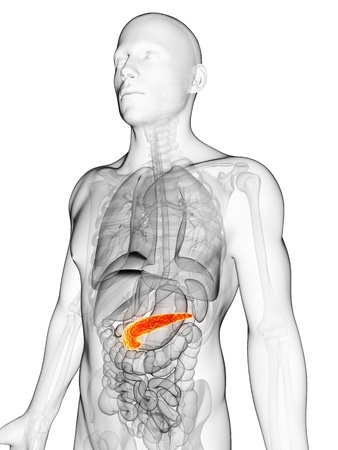Victoza Lawsuit

Research has suggested that Victoza and other Type 2 diabetes medications called incretin mimetics may harm the pancreas, leading to pancreatic cancer or pancreatitis. Hundreds of product liability claims have been filed in U.S. courts on behalf of patients who were allegedly harmed by these drugs.
Victoza Lawsuit Reviews
Bernstein Liebhard LLP is evaluating legal claims on behalf of Victoza patients who were diagnosed with pancreatitis or pancreatic cancer. To learn more about filing a Victoza lawsuit, please contact our office at (888) 994-5118.
Victoza: What’ the Problem?
Victoza (liraglutide) is a once-daily, injectable diabetes medication used to help control blood sugar in adults with Type 2 diabetes. When the U.S. Food & Drug Administration (FDA) approved Victoza in 2010, it did so against the advice of two of its own expert committees. Among other things, the FDA’s advisors were concerned about Victoza’s association with pancreatitis and thyroid tumors.
In June 2011, the FDA updated the Victoza label to warn patients about the increased risk of pancreatitis, thyroid cancer, and kidney failure. In 2013, the agency announced it was investigating a possible link between incretin mimetics and an increased risk of pancreatic cancer. Read More
Petitions to Ban Victoza
Public Citizen, a consumer advocacy group dedicated to patient safety, has repeatedly petitioned the FDA to ban Victoza:
- April 2012: According to the group’s first petition, Victoza had already been inked to thyroid cancer, pancreatitis, serious allergic reactions, and kidney failure during its first two years on the market. As many safer alternatives are available to treat Type 2 diabetes, Public Citizen contends that the risks associated with Victoza outweigh any benefits.
- June 2014: Public Citizen’s second petition cites the risk of acute pancreatitis as yet another reason to issue a Victoza recall.
British Medical Journal Raises Alarm
- June 2013: An investigation by the British Medical Journal concluded that the pancreatic risks associated with Victoza and other incretin mimetics may have been downplayed by the pharmaceutical industry. The authors of the report also faulted the FDA and European regulators for failing to aggressively address these concerns. Read More
Incretin Mimetics Litigation
As of January 2016, more than 750 legal claims had been filed on behalf of patients who were diagnosed with pancreatitis or pancreatic cancer while taking an incretin mimetic to treat Type 2 diabetes. The majority of these cases have been centralized in a multidistrict litigation that is currently underway in the U.S. District Court, Southern District of California (MDL No. 2452). Read More
Learn More about Filing a Victoza Lawsuit
Bernstein Liebhard LLP is offering free legal reviews to individuals interested in filing a Victoza lawsuit. If you or a loved one were diagnosed with pancreatic cancer or pancreatitis while using this medication, please contact our legal staff today by calling (888) 994-5118.
- FDA (2011) “Victoza (liraglutide [rDNA origin]) Injection: REMS – Risk of Thyroid C-cell Tumors, Acute Pancreatitis” http://www.fda.gov/Safety/MedWatch/SafetyInformation/SafetyAlertsforHumanMedicalProducts/ucm258826.htm
- FDA (2013) “FDA Drug Safety Communication: FDA investigating reports of possible increased risk of pancreatitis and pre-cancerous findings of the pancreas from incretin mimetic drugs for type 2 diabetes” http://www.fda.gov/Drugs/DrugSafety/ucm343187.htm
- Public Citizen (2012) “Public Citizen to FDA: Pull Diabetes Drug Victoza From Market Immediately” https://www.citizen.org/pressroom/pressroomredirect.cfm?ID=3586
- Public Citizen (2014) “Acute Pancreatitis with Liraglutide” http://www.citizen.org/hrg2204
- BMJ (2013) “Has pancreatic damage from glucagon suppressing diabetes drugs been underplayed?” http://www.bmj.com/content/346/bmj.f3680
Get the latest news and litigation updates about this case by following us on Facebook. Click the "Like" button below.
Follow Us


